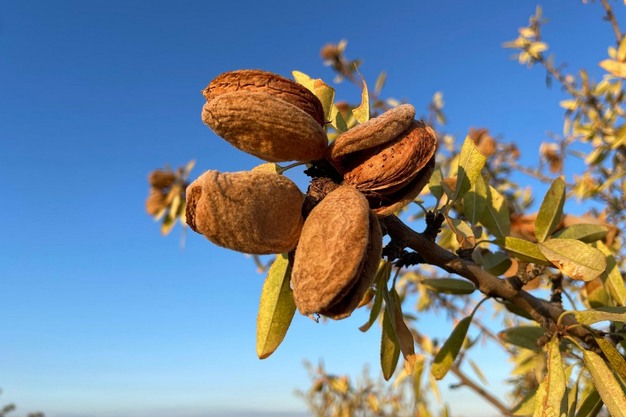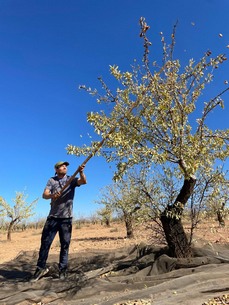A dozen cooperatives in Granada devoted to almond production have started the harvesting season with good prospects and the forecast of more than 30% growth compared to last year.

The sector, which had had several seasons with negative results, mainly due to the drought, is confident that, when the season comes to an end, the figures will show that the farms remain profitable. Also, the dreaded almond seed wasp pest has not had as much of an impact as expected.
Despite the fact that, according to growers, the almond season is progressing at a good pace, a reduction in the yield per kilo is also reported; a direct consequence of the water shortages.
As far as sales are concerned, the price of conventional almonds has remained unchanged, while that of organic almonds is rising.
 Cooperativas Agroalimentarias de Granada-FAECA has 12 cooperatives among its members that grow and harvest different almond varieties, although the Desmayo and Marcona (early) and Guara, Tuono, Ferragnes and Sabana (late), among others, are the most common.
Cooperativas Agroalimentarias de Granada-FAECA has 12 cooperatives among its members that grow and harvest different almond varieties, although the Desmayo and Marcona (early) and Guara, Tuono, Ferragnes and Sabana (late), among others, are the most common.
The federation of cooperatives insists on the importance of checking the origin of the almonds and almond products and consuming Spanish products, whose quality is higher than that of imported almonds, most of which come from California, United States.
The northern regions and the areas around Alhama, Órgiva and Dúrcal are where most almonds are grown in a province that is the country's leading almond producer and the one with the largest acreage devoted to this crop (70,000 hectares).
In total, 130,000 tons (of shelled almonds) were produced last year. Around 40 percent of the total acreage is devoted to organic production.
Furthermore, 90% of almond exports are of kernels, which account for 85% of the total volume exported. The main importing countries are Germany, France, Italy and the Netherlands.
For more information:
Agrifood Cooperatives Granada
Tel.: +34 666 82 97 45
comunicacion@faecagranada.com
www.faecagranada.com
